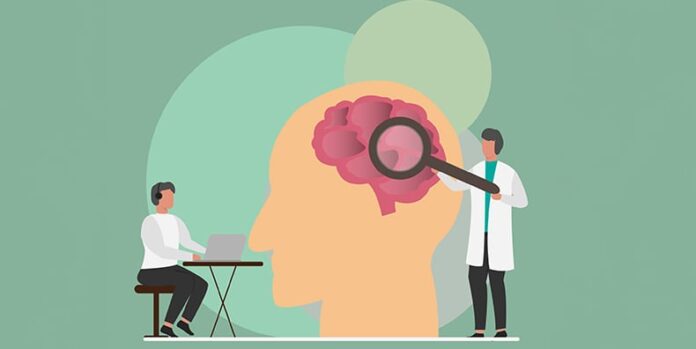Views
Starting antipsychotics for bipolar disorder seemed simple, but I discovered these medications come with unexpected challenges — and benefits.
The day I was diagnosed with bipolar disorder, I was prescribed an antipsychotic. Over time, this turned into a regimen of two different antipsychotics, along with mood stabilizers and antidepressants.
When I first started taking antipsychotics, I thought it would be straightforward: take a pill or two, and I’d feel better. But after several hospitalizations and numerous medication changes, I now realize how naïve that expectation was. There’s a lot I didn’t understand about taking antipsychotic medication.
1. The Overwhelming Fatigue of Sedation
Sedation is one of the most common side effects of atypical antipsychotics — and for me, it’s the worst. I didn’t realize just how debilitating it could be until I experienced it firsthand. At times, it feels like trading one set of problems (my psychotic manic highs) for another (sedation).
When people hear the word “sedation,” they often think of drowsiness, but it’s so much more than that. Drowsiness is feeling moderately tired; sedation is a crushing fatigue that makes keeping your eyes open impossible, no matter how hard you try.
RELATED: A Guide to Bipolar Disorder Medication
My mornings are especially difficult. Even if my body wakes up, my mind remains groggy until the afternoon.
What I didn’t realize is how much antipsychotics dictate your daily routine. To have a productive day, I need a strict bedtime, which has impacted my social life. If I don’t take my medication at the right time, I’ll sleep most of the day away. My entire schedule revolves around these medications.
2. Constant Hunger and Fear of Weight Gain
I’ve been fortunate not to gain weight since starting antipsychotics, but I work hard to maintain it. I exercise nearly daily and watch what I eat — no small feat considering the sedation. Even so, the potential for weight gain looms over me, constantly on my mind.
What I do experience is insatiable hunger after taking my antipsychotics. No matter what I eat, I feel like a bottomless pit.
To manage this, I’ve learned to take my antipsychotics right before bed (hence why I sleep late — another trade-off). While this helps reduce evening binges, it’s not foolproof; I still occasionally wake up and eat at night.
3. The Persistent Discomfort of Dry Mouth
As a nurse, I knew that dry mouth was a common side effect of antipsychotics, but I didn’t expect it to be this severe — or constant. I’ve had a dry mouth for more than three years, and water, gum, or mints don’t bring relief.
It feels like I’ve run a marathon in the desert without a single sip of water. Mornings are the worst; I often wake up feeling like I’ve swallowed a sand dune, and the dryness can quickly turn into a sore throat.
RELATED: 5 Things I Didn’t Know About Taking Mood Stabilizers
What surprised me most was how much water I needed just to talk properly. It’s as if my mouth is glued shut. Drinking so much water leaves me feeling bloated, and I’m running to the bathroom constantly.
4. The Lingering Taste of Medication
One of my antipsychotics is a dissolvable wafer — and it tastes awful. I can’t even describe the taste accurately. The first time I took it, my tongue went numb, and my mouth tingled. I thought I was having an allergic reaction (I wasn’t; it’s a normal side effect). For the first year, the taste was so bad I nearly vomited every night. Even though it only takes seconds to dissolve, it feels like minutes, and the bitter taste lingers for hours.
5. Irritability From Antipsychotic Side Effects
One unexpected side effect of antipsychotics is irritability, which I think stems indirectly from fatigue and other physical effects. Everyone gets grumpy when they’re tired, so it makes sense that sedation would make me irritable. Mornings are especially hard — when my brain feels half-asleep, and my throat is burning, I’m in no mood to socialize.
RELATED: Practical Tips for Managing Bipolar Irritability in Close Relationships
On top of that, managing the side effects of antipsychotics alongside other medications adds to the frustration. It’s a lot to deal with; sometimes, it just wears on me.
It’s also important to ensure that irritability doesn’t result from a side effect like akathisia, which causes restlessness and discomfort. If that’s the case, a different medication may be needed.
6. The Stabilizing Effects of Antipsychotics
So far, I’ve painted a pretty grim picture. There are days when I wonder if I’ve made the right choice in sticking with antipsychotics. But then I remind myself why I take them.
Antipsychotics have been highly effective in controlling my mania and psychosis. They’ve stopped constantly cycling in and out of mania that would otherwise dominate my life. It is because of antipsychotics and a combination of other medications that I can function and enjoy life.
Sometimes, you have to choose the lesser of two evils, and for now, the lesser evil is antipsychotics.
UPDATED: Originally posted January 9, 2017


